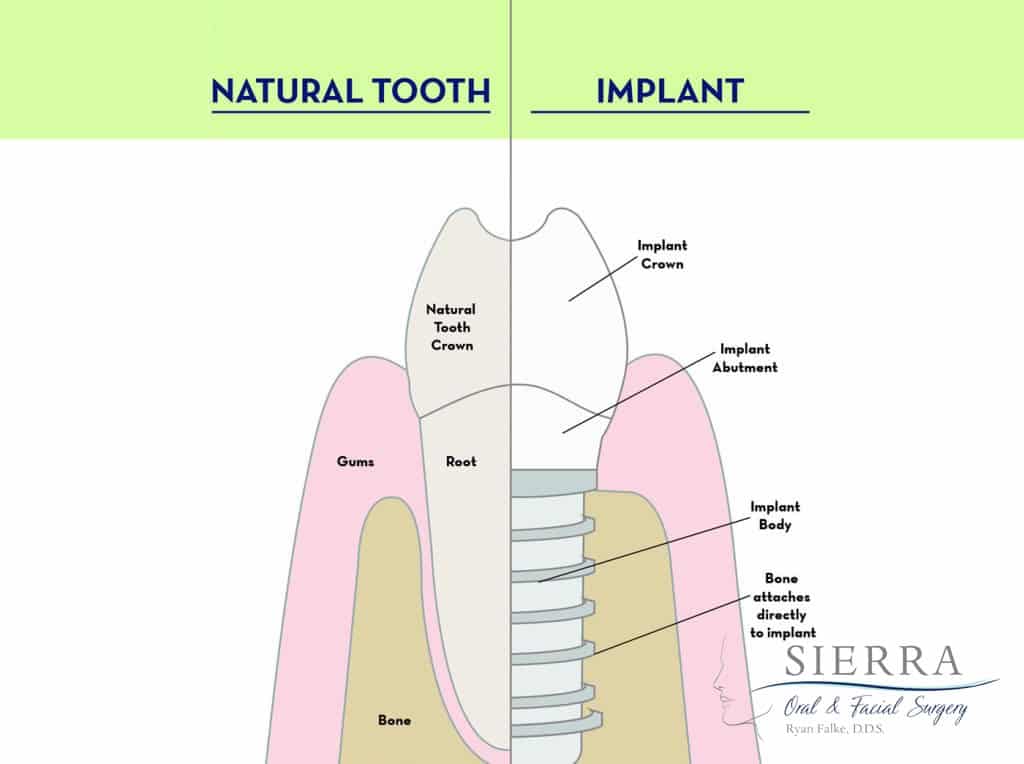How does it work?
After a detailed consultation and examination, a cost projection will be prepared by your oral surgeon. Once your questions have been answered and you are comfortable, your implants will be placed. When your oral surgeon is satisfied with the stability of your implant, you will be referred back to your general dentist for the implant abutment and crown.
Treatment Procedure
After detailed consultation and examination, a cost projection will be prepared by your oral surgeon. Only when you are comfortable with what will happen will your surgery take place and the implant(s) will be
inserted.
Time frame
An individual schedule will be created for your care. Usually, 5-10 visits are required over 6 months to a year.
What other procedures are done with dental implants?
Bone Grafting
Often when a tooth needs to be extracted there is bone loss. To ensure the best chance of successful implant integration, bone grafting may be recommended for you.
3D CT Scan
Often your oral surgeon will take a 3D CT scan to evaluate bone levels and determine ideal implant placement.
What are the advantages of dental implants?
Dental implants make you feel comfortable
You can eat whatever you want – your teeth are strong and stable. They look and feel like your own teeth too. You know that you have chosen the best solution and can smile a confident and beaming smile.
Implants provide a long-lasting solution
When you maintain good oral hygiene, including regular cleanings and routine exams, your implants can last years. This makes implants an efficient and economic long-term solution.
Dental implants support your health
When you lose a tooth, the jaw bone and gum start to resorb and continue if you lose several teeth. Implants protect healthy teeth, prevent bone loss and help you keep your natural look.
Protection and preservation
To attach a conventional bridge, the dentist often needs to grind down healthy neighboring teeth. Using dental implants, this is usually not necessarily healthy teeth are protected.


